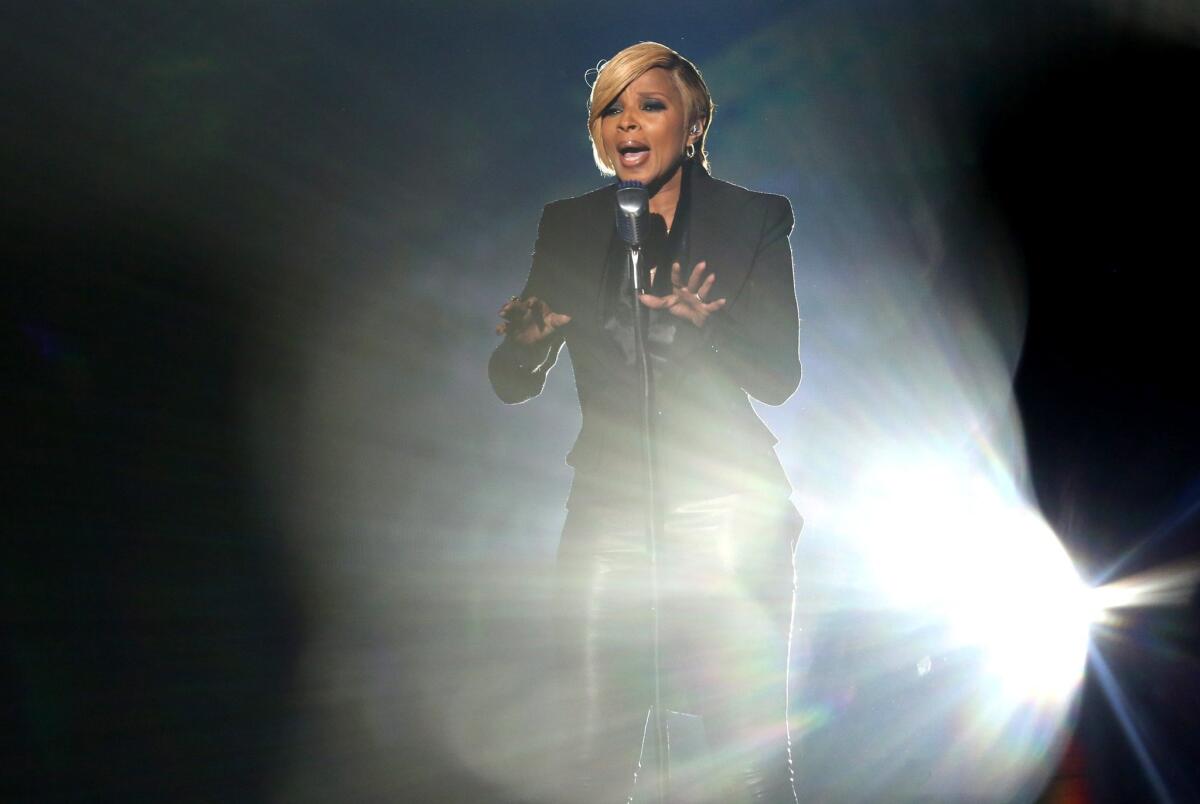Mary J. Blige puts accent on pop with ‘London Sessions’

- Share via
Mary J. Blige, “The London Sessions” (Capitol).
The most explosive R&B singer of the last two decades crossed the Atlantic for “The London Sessions.” In doing so, Mary J. Blige also gracefully leaped out of her comfort zone, and the result is a shimmering dance-pop record from start to finish — with a few choice ballads to catch your breath.
Featuring production work by London sibling team Disclosure, the funk pop chameleon Rodney Jerkins, British garage producer MJ Cole and others, “The London Sessions” is gleefully funky with wobbly synth washes, that house-heavy heartbeat thump and Blige’s elastic, pitch-perfect tone. “Winter took most of my heart and spring punched me right in the stomach,” sings Blige on the hard meditation “Whole Damn Year.” She continues: “Summer came looking for blood/ And by autumn I was left with nothing,” and ends the stanza with heartbreak: “It’s been a bad five years.” “Sessions” suggests sunlight on the horizon.
Landlady, “Please Come Home for Christmas” (Hometapes).
New York experimental pop band Landlady, with the help of Sylvan Esso vocalist Amelia Meath, injects with peppermint schnapps Charles Brown’s 1960 seasonal classic, “Please Come Home for Christmas,” turning a gentle soul ballad into a shot of rhythm without losing any heart. The band released its assured debut full length, “Upright Behavior,” in the summer, and a similar creative drive is at the center of “Please Come Home for Christmas,” available to stream at Soundcloud.
Brian Eno, “Nerve Net,” “The Drop,” others (All Saints).
Fans of Brian Eno’s oft-blissful ambient music of the 1970s often overlook the composer-producer’s work in the 1980s and ‘90s, an era in which he was producing U2 and composing the ubiquitous start-up music for Windows 95, among myriad other creative endeavors. The four albums represented in a new Eno reissue campaign shed light on this lesser-known mood music, much of which is instrumental and suggests a more rhythm-heavy extension of his excellent odes to silence, “Music for Films,” “Music for Airports” and others.
The four — “Nerve Net,” “The Drop,” “The Shutov Assembly” and “Neroli (Thinking Music Part 2)” — are now available as expanded two-CD sets or downloads. They confirm that even when focused on making music designed in part to obscure the line between background and foreground music — with velveteen beats, easy melodies and typically evocative structural explorations — even the crannies of Eno’s catalog are filled with wonder.
Twitter: @LilEdit
More to Read
The biggest entertainment stories
Get our big stories about Hollywood, film, television, music, arts, culture and more right in your inbox as soon as they publish.
You may occasionally receive promotional content from the Los Angeles Times.











